
THREAD: china warns escalation over us
LifeLine™ Media threads use our sophisticated algorithms to construct a thread around any topic you want, providing you with a detailed timeline, analysis, and related articles.
News Timeline


CHINA’S 34% Tariff Shock: How It Could Hurt American Wallets
— China has slapped a 34% tariff on U.S. goods, ramping up trade tensions. This follows recent U.S. tariffs on Chinese imports, sparking fears of a trade war.
Experts warn these tariffs might harm American businesses and consumers by raising prices and slowing economic growth. Washington is concerned about undoing post-pandemic recovery efforts.
The Trump administration is considering countermeasures and may seek international support to tackle China’s trade practices. This situation has ignited debates over the future of U.S.-China relations and global trade dynamics.
Financial markets reacted quickly, with stocks dropping due to fears that escalating conflicts could further destabilize the global economy. These developments could significantly affect both U.S.-China relations and international markets.
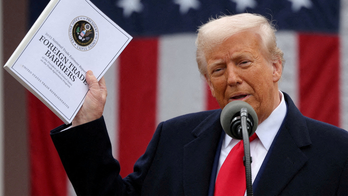
TRUMP’S Trade WAR Shocks: China And EU Face Major Impacts
— President Donald TRUMP announced sweeping tariffs affecting nearly all U.S. trading partners. China and the EU are hit hardest. The White House imposed a 10% tariff on all imports, with China facing an additional 34% on top of an existing 20%, totaling a hefty 54%. This move is just shy of Trump’s campaign promise of a 60% tariff on Chinese goods.
China reacted strongly, promising countermeasures against what it calls “protectionism.” The Chinese Commerce Ministry argues that trade wars have no winners and urges the U.S. to resolve differences through fair talks. Meanwhile, European nations face a blanket 20% tariff along with existing tariffs on steel, aluminum, and car exports.
Canada’s Prime Minister Carney has vowed to “fight” these tariffs as other world leaders assess their economic impact. The European Union has also promised retaliation against Trump’s aggressive trade policies. As tensions rise globally, nations brace for potential economic fallout from this escalating trade war initiated by the U.S..

IRAN’S Nuclear Threat: A Dangerous Escalation
— Iran has filed a complaint with the United Nations Security Council over President Donald Trump’s recent warnings. Trump threatened bombing and more tariffs if Iran rejects a nuclear deal. His remarks have heightened tensions between Tehran and Washington during ongoing talks about Iran’s nuclear capabilities.
In reaction to Trump’s comments, Iranian leaders vowed to boost their defense measures. Supreme Leader Ali Khamenei’s adviser said Iran would have “no choice” but to seek nuclear weapons if attacked. This statement highlights the fragile relations between the two nations.
This issue is part of larger geopolitical tensions involving Iran’s nuclear ambitions and U.S. foreign policy under Trump. The heated words from both sides could lead to more military escalations in an already unstable region, raising fears of conflict and its impact on global security dynamics.
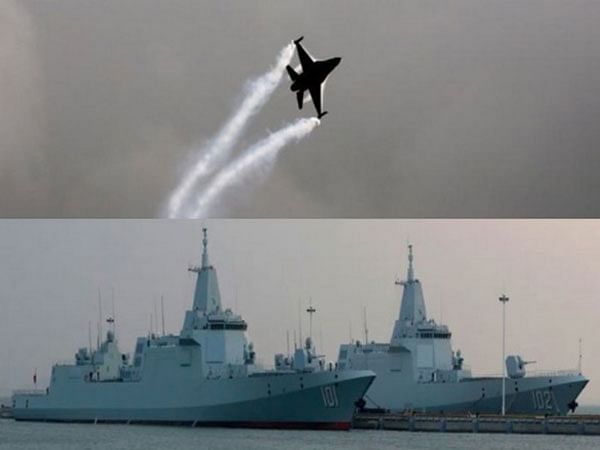
CHINA’S Aggressive Moves Near Taiwan Spark Fears
— Taiwan has spotted 11 Chinese military aircraft and nine vessels close to its territory. This highlights the rising tensions between China and Taiwan.
China’s United Front Work Department has created a misinformation unit, boosting efforts in cognitive warfare against Taiwan. This shows China’s strategic focus on psychological operations in the area.
These military actions stress Taiwan’s need to stay alert as China increases its maneuvers. The situation demands global attention to maintain regional stability and peace.

CHINA’S Military Moves Near Taiwan Stir Global Concern
— Taiwan has spotted 11 Chinese military aircraft and 9 vessels close to its territory. This marks a major increase in China’s military activity around Taiwan.
China is also boosting its cognitive warfare against Taiwan by setting up a misinformation unit within its United Front Work Department. This move raises fears of rising tensions in the region.
In other news, AIM Vaccine’s improved diploid rabies vaccine has been approved for clinical trials. The new vaccine promises better results than current options, highlighting AIM’s innovative power on the global stage.

SOUTH CHINA SEA Showdown: Rising Fears and Global Stakes
— Armed forces from several nations are boosting their presence in the South China Sea, raising tensions over territorial claims. Chinese naval vessels have confronted American warships in disputed waters, leading to close encounters. The United States reaffirms its commitment to freedom of navigation, while China insists the area is under its sovereignty.
Regional allies like Japan and Australia are worried about the rising tension and call for diplomatic solutions. Chinese vessels have intercepted U.S. Navy ships during routine operations, prompting condemnation from the U.S. State Department. In response, China defends its actions as protecting sovereignty and warns against foreign provocations.
Both sides prepare for possible military drills in the region, raising fears of accidental conflict. Analysts warn that ongoing military posturing could trigger a major geopolitical crisis affecting trade routes and international relations across Asia-Pacific.
The situation demands careful handling to avoid unintended escalation and maintain regional stability as tensions continue to simmer in these contested waters.
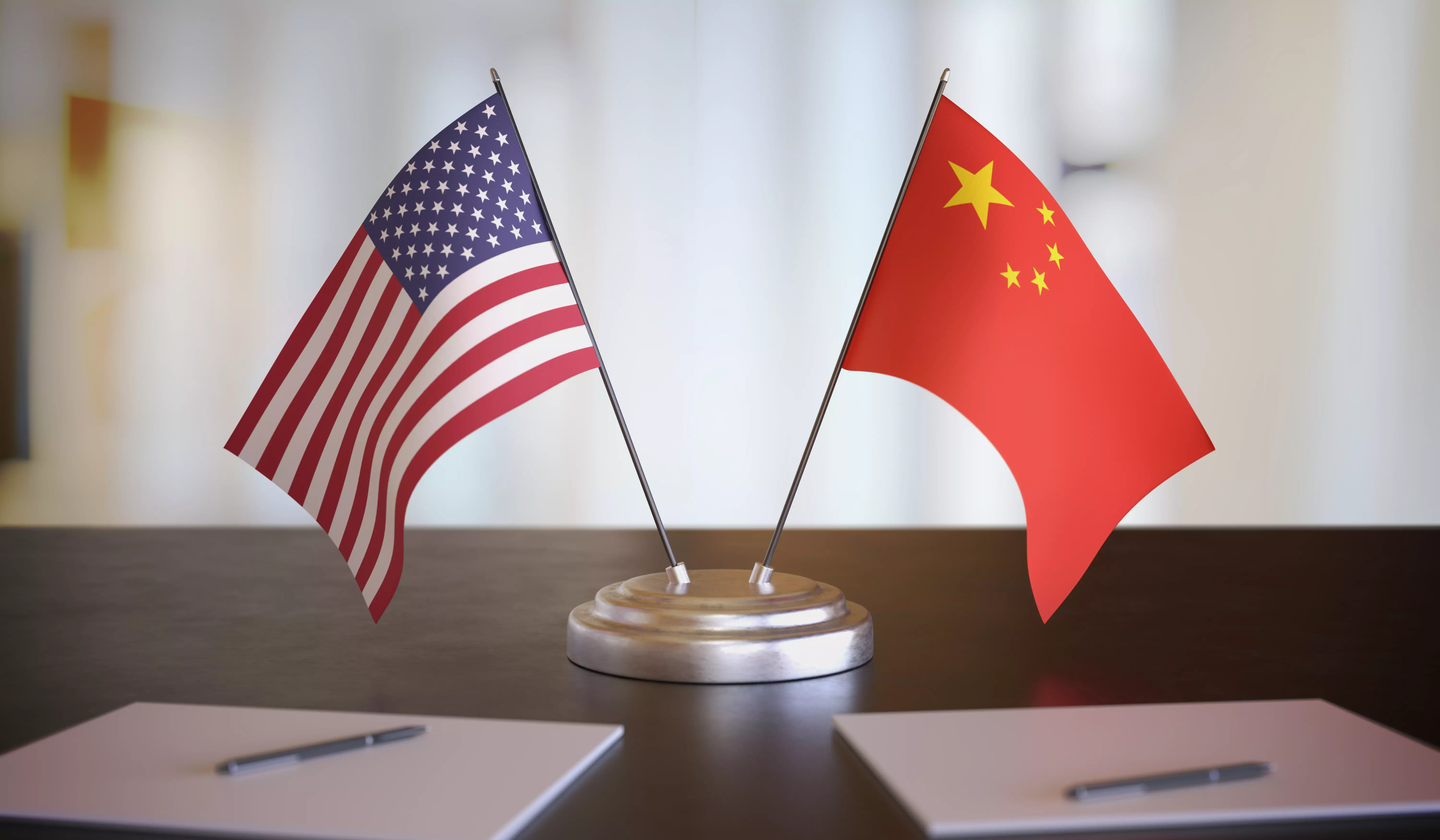
CHINA WARNS of Escalation Over US Tariff Moves
— China has issued a stern warning in response to recent U.S. tariff challenges, signaling potential escalation if tensions continue. A Chinese official stated that the situation could worsen dramatically if provoked further by the United States. Beijing remains committed to supporting its economy while criticizing U.S. actions as aggressive and harmful to international trade relations.
TAIWAN RALLIES UKRAINE SUPPORT Against CHINA THREATS
Taiwan is reportedly teaming up with Ukrainian companies to develop contingency plans due to rising tensions with China. This strategic move aims at bolstering Taiwan’s defenses and ensuring economic stability against potential threats from mainland China.
CONGO VIOLENCE SURGES, Raising HUMANITARIAN ALARMS
The conflict in the Democratic Republic of the Congo has intensified significantly, raising alarms over worsening humanitarian conditions. Local reports highlight increased violence, prompting international scrutiny of the situation’s impact on civilians.
South Sudan faces political turmoil following the arrest of a key military leader, confirmed by a vice-presidential spokesperson. This development threatens the country’s fragile peace deal amidst ongoing internal conflicts and power struggles. These stories underscore current geopolitical challenges as of March 5, 2025, reflecting a dynamic landscape

TRUMP’S BOLD Trade WAR: Tariffs on Canada, Mexico, and China
— President Donald Trump has reignited trade tensions by imposing new tariffs on Canada, Mexico, and China. These include a 25% tax on imports from Canada and Mexico and a 10% tariff specifically targeting Canadian energy products. This move is expected to provoke swift retaliation from these nations.
Trump argues that trade disputes with these countries have harmed U.S. interests. China’s national legislature criticized the tariffs, stating they damage both economies and undermine mutually beneficial trade relations. Canadian Prime Minister Justin Trudeau questioned the rationale behind the tariffs, suggesting they aim to weaken Canada’s economy.
Financial markets reacted negatively to the announcement, raising concerns about inflation and uncertainty in international trade relations. Analysts warn this could lead to broader economic conflicts affecting both U.S. and global economies.
Mexico and Canada have yet to respond publicly but are expected to address the issue soon in press conferences. Lawmakers in Congress express concerns over potential fallout from such aggressive measures while international trade organizations closely monitor the situation for its global economic impact.

TRUMP’S Trade WAR: Global Markets in Chaos
— President Donald TRUMP’s recent tariffs have sparked swift retaliation from Mexico, Canada, and China. These actions have thrown financial markets into chaos, raising fears of inflation and uncertainty for businesses.
Imports from Canada and Mexico now face a 25% tariff, with Canadian energy products specifically taxed at 10%. This move has heightened global trade tensions significantly.
China responded quickly to the U.S. tariffs, escalating an already heated international dispute. A Chinese spokesperson warned that these measures could harm the U.S. economy by disrupting beneficial trade relations.
Analysts worry about potential backlash against U.S. exports as these trade disputes unfold. The situation is seen as a risky maneuver that might reshape global trade dynamics and impact both consumers and businesses in the long run.

US TRADE WAR Heats UP: China and Canada Strike Back
— China and Canada hit back at the U.S. with their own tariffs after America imposed new levies on them. This could worsen trade ties with these key partners. China set additional tariffs up to 15% on certain American goods.
Canada also announced it would impose tariffs as high as 25% in response to the U.S.'s recent actions against both countries. These moves follow America’s new tariffs targeting these nations, heightening global trade tensions.
This growing tariff battle shows the increasing economic friction between major economies under current U.S. policies. The situation is still changing, affecting international trade and domestic markets in all involved countries.

CHINA STRIKES Back: US Farmers Face Uncertain Future in Trade WAR
— China swiftly hit back at new U.S. tariffs by imposing higher import taxes on $21 billion of American agricultural goods. This move ramps up tensions between the world’s two largest economies, edging them closer to a trade war.
Despite the increased tariffs, China’s futures markets stayed steady, showing strength amid this economic clash. The Chinese government has stated it won’t be cowed by these new actions from the Trump administration.
This situation highlights the growing economic rivalry and its impact on global trade relations, especially in agriculture — a vital sector for both countries. As this dispute unfolds, American farmers might struggle to keep their export markets in China.
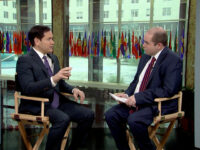
RUBIO SOUNDS Alarm on Russia-China Threat
— Senator Marco Rubio is sounding the alarm about Russia’s growing reliance on China. He warns this could lead to two nuclear powers uniting against the United States. Rubio stresses that U.S.-China relations will shape the century and highlights the need for diplomatic ties with both nations. A permanent Russia-China alliance, he says, threatens global stability and American interests.
While in Panama, Rubio convinced its government to leave China’s Belt and Road Initiative. He stressed the Panama Canal’s strategic importance for U.S. trade and voiced concerns over Chinese control of key ports there. Criticizing past decisions that let China gain influence in this vital region, he called for pro-American partnerships in Latin America.
Rubio praised President Trump’s efforts to counter China’s global influence through projects like the India-Middle East-Europe Economic Corridor (IMEC). This initiative aims to create new trade routes, reducing dependence on China’s economic power. Trump’s strategy strengthens alliances worldwide, especially where Chinese debt diplomacy is a threat, ensuring America’s interests are protected globally from a strong position.

TRUMP’S Bold Trade WAR: New Tariffs Spark Economic Jitters
— President Donald Trump has announced a 25% tariff on goods from Canada and Mexico, and a 10% tariff on Chinese products. This bold move is expected to provoke retaliation, raising fears of a broader trade war. Republicans largely support the decision, but industry groups and Democrats warn of possible price hikes that could worsen inflation.
The tariffs are likely to affect multiple sectors, sparking discussions about inflationary pressures and reduced consumer spending. Economists worry about the impact on market stability and growth. The political landscape is divided, with some lawmakers backing the tariffs as protection for American industries while others worry about international relations and domestic prices.
Analysts caution that retaliatory measures could escalate tensions further, leading to an unstable economic environment if not managed carefully. This development highlights ongoing international trade tensions with significant implications for America’s future economic stability. As this situation unfolds, it remains crucial to monitor its effects on both domestic markets and global economic relations.

CHINA’S AI Threat: Tech Stocks in Danger of $1 Trillion Wipeout
— Chinese AI startup DeepSeek has shaken global tech stocks, sparking fears about America’s technological advantage. Investors worry about a potential $1 trillion loss in tech value due to rising foreign competition.
The drop in tech shares shows growing concern over the competitive landscape. Major indices have fallen, urging investors to be cautious as the situation develops.
This happens amid wider talks on global trade and economic competitiveness, especially in tech-heavy areas. Experts recommend reassessing portfolios, favoring stable investments over risky tech stocks.
Market analysts emphasize watching these changes closely as they could affect market stability and growth prospects in the technology sector moving forward.
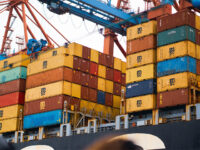
CHINA’S Record Trade Surplus Sparks Global Alarm
— In December 2024, CHINA reached a record trade surplus of $104.8 billion. This was due to a surge in exports before President-elect Donald Trump could impose tariffs. The New York Times reported that China’s export boom is causing friction with many trade partners, not just the United States. Several nations are now erecting tariff barriers against Chinese products to protect their markets.
China’s export success has been an economic boon, creating millions of jobs in sectors like manufacturing and engineering. The nation dominates industries such as solar panels and is becoming self-sufficient in areas like commercial jets. However, China still struggles with energy independence outside solar power.
The automobile industry showcases China’s manufacturing strength, evolving from a major importer to the world’s largest car exporter in two decades. Critics argue that China’s overcapacity and government subsidies distort global auto markets by flooding them with cheap vehicles amid declining local demand.
While record exports might seem beneficial for China, they could lead to financial strain if companies face bankruptcy due to low prices and excess inventory as tariff barriers persist globally. The auto industry may have peaked, facing strong resistance from politically influential foreign markets protecting their own electric vehicle sectors through tariffs and subsidies.
— China’s Xi Jinping Calls for Action to Prevent Future Mass Killings The Chinese president has emphasized the need for measures to ensure that recent mass killings do not recur in the nation

— China Prepares for Key Week Amid US Elections and Stimulus Anticipation Markets are closely watching as China braces for significant developments related to the upcoming US elections and potential economic stimulus announcements

US DEMANDS TOUGH Sanctions on China for Fentanyl Crisis
— A group has filed a petition with the U.S. Trade Representative, urging action against China under Section 301 of the Trade Act of 1974. This section allows the U.S. to impose sanctions on countries that violate trade agreements or harm American commerce. Attorney Nazak Nikakhtar emphasized that sanctions are within legal rights and necessary to pressure China economically.
The opioid crisis cost the U.S. nearly $1.5 trillion in 2020, according to a House Joint Economic Committee report from September 2022. An investigation by Reuters revealed that Chinese companies openly sell fentanyl ingredients online and ship them easily to the U.S., contributing significantly to this crisis. These suppliers often send shipments to Mexican cartels, which then manufacture synthetic opioids like fentanyl, worsening the problem further.
In May 2023, the CDC reported that synthetic opioids caused over 81,000 American deaths in one year, mainly due to fentanyl overdoses. The ongoing crisis highlights an urgent need for effective measures against foreign suppliers fueling this epidemic affecting countless American families daily.;
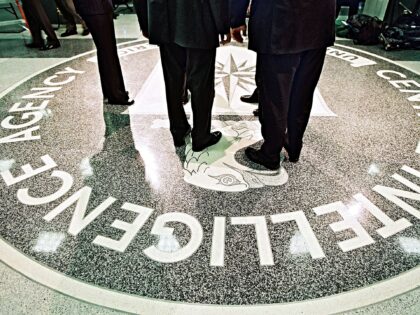
CIA and MI6 Chiefs WARN: Global Threats Looming
— The heads of the CIA and MI6 have issued a stark warning about global threats. They highlighted the war in Ukraine, sabotage in Europe, and rising tensions with China. “We saw the war in Ukraine coming,” they stated, emphasizing their role in alerting the international community.
They are actively working to disrupt Russia’s sabotage campaigns across Europe and address escalating conflicts like the Israel-Gaza situation. Counterterrorism efforts against ISIS are also a priority. The intelligence chiefs stressed that global stability is under threat like never before since the Cold War.
China’s rise is identified as the main geopolitical challenge of this century, prompting both agencies to reorganize their priorities accordingly. Russian intelligence activities were described as reckless, with recent incidents of sabotage and arson attacks on infrastructure in Europe being attributed to Moscow’s covert operations.;

— China SLAMS US for Expanding Export Control List, Promises Retaliation The Chinese government has criticized the United States for adding more companies to its export control list and has vowed to take countermeasures
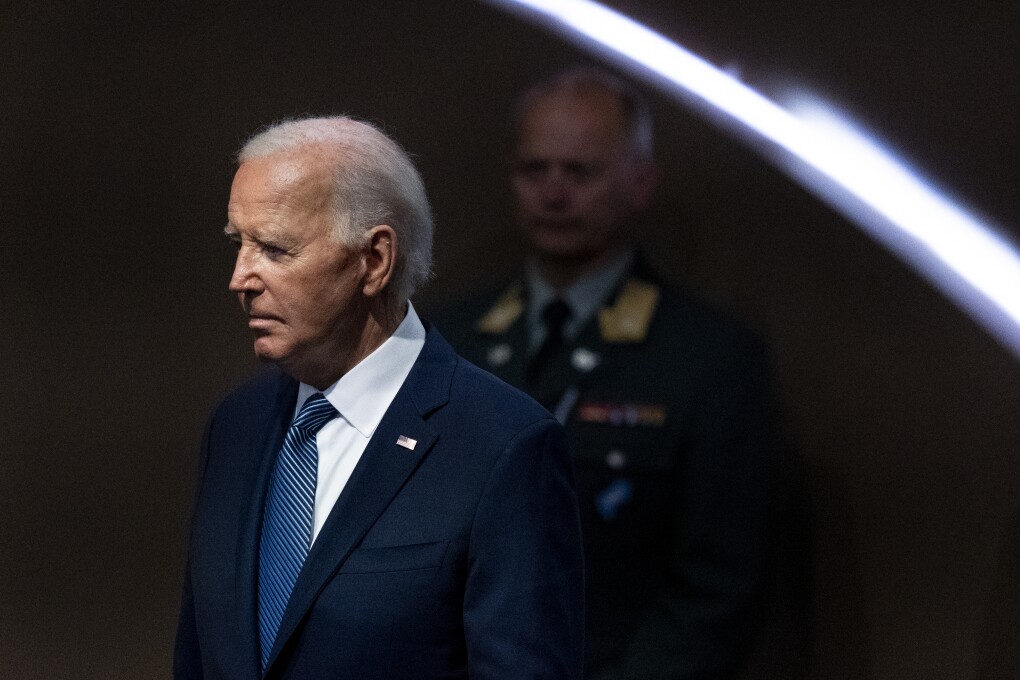
— Biden’s Re-election Campaign Faces Mounting Challenges as Troubles Escalate

— **Southeast Asia Emerges as Prime Supply Chain Diversification Hub Amid US-China Tensions** Companies increasingly turn to Southeast Asia for diversifying supply chains amidst escalating tensions between the US and China
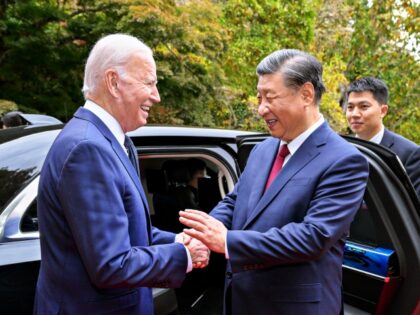
Bipartisan Committee CALLS for END of China’s Trade Status: A Potential Jolt to US Economy
— A bipartisan committee, led by Rep. Mike Gallagher (R-WI) and Rep. Raja Krishnamoorthi (D-IL), has been studying the economic effects of China on the US for a year. The investigation centered on job market changes, manufacturing shifts, and national security concerns since China joined the World Trade Organization (WTO) in 2001.
The committee released a report this Tuesday recommending President Joe Biden’s administration and Congress to implement nearly 150 policies to counteract China’s economic influence. One significant suggestion is to cancel China’s permanent normal trade relations status (PNTR) with the U.S., a status endorsed by former President George W. Bush in 2001.
The report argues that granting PNTR to China did not bring anticipated benefits for the US or trigger expected reforms in China. It asserts that this has led to a loss of vital U.S. economic leverage and inflicted damage on U.S industry, workers, and manufacturers due to unfair trade practices.
The committee proposes shifting China into a new tariff category that reinstates U.S economic leverage while reducing dependence on Chinese
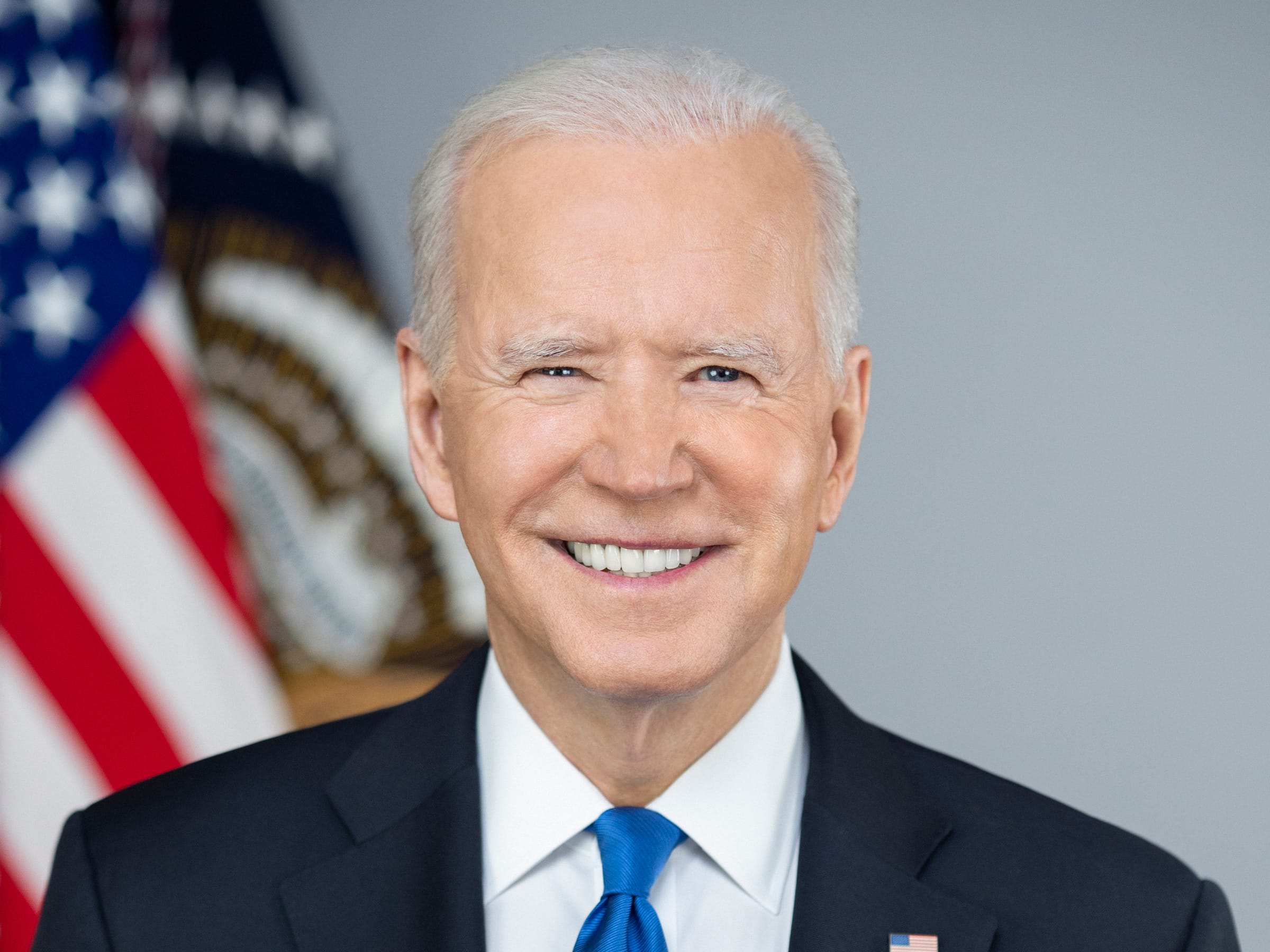
BIDEN-XI Summit: A Bold Leap or a Blunder in US-China Diplomacy?
— President Joe Biden and Chinese President Xi Jinping have committed to keeping direct lines of communication open. This decision follows their lengthy four-hour discussion at the 2023 APEC summit in San Francisco. The leaders unveiled an initial agreement aimed at halting the influx of fentanyl precursors into the U.S. They also plan to restore military communications, which were cut off after China’s disagreement with the Pentagon following Nancy Pelosi’s visit to Taiwan in 2022.
Despite rising tensions, Biden made efforts during Wednesday’s meeting to strengthen U.S.-China relations. He also vowed to persistently challenge Xi on human rights issues, arguing that frank discussions are “critical” for successful diplomacy.
Biden voiced positivity about his rapport with Xi, a relationship that began during their vice-presidential terms. However, uncertainty looms as a congressional investigation into COVID-19 origins threatens US-China relations.
It is unclear whether this renewed dialogue will result in substantial progress or further complications.
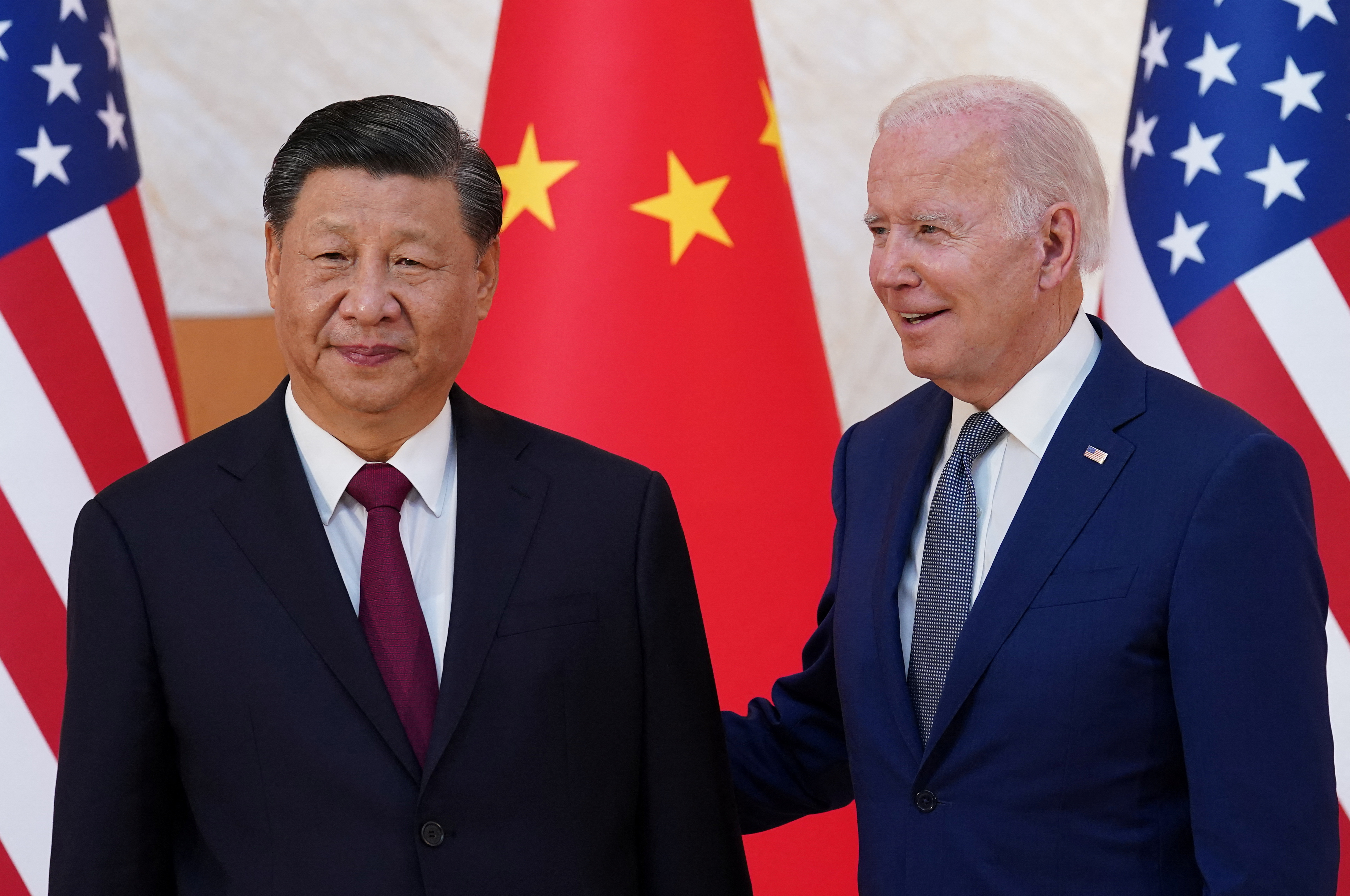
BIDEN and XI: Critical Trade Talks Amid Escalating Tensions
— President Joe Biden is scheduled to meet with Chinese President Xi Jinping in California this Wednesday. This marks their first rendezvous in a year, amidst the backdrop of strained U.S.-China relations. The world’s two largest economies will put trade and Taiwan at the forefront of their discussions.
The White House has been alluding to this meeting for some time now. It will occur on the fringes of the Asia-Pacific Economic Cooperation summit in San Francisco. Both leaders are aiming to “responsibly manage competition” and collaborate where mutual interests overlap.
Meanwhile, Treasury Secretary Janet Yellen has been engaging with Chinese Vice Premier He Lifeng for a second day of dialogue on Friday. Yellen underscored America’s aspiration for a robust economic relationship with China, while also urging Beijing to take action against firms suspected of circumventing sanctions to transact with Russia.
Yellen additionally expressed apprehensions about China’s export controls on graphite – an essential component in electric vehicle batteries – amidst escalating tensions between the nations that could see thousands protesting during the summit.

Video
CHINA’S Aggression in South China Sea: US Allies on Edge
— China is ramping up aggressive actions near the Philippines, pushing boundaries that could compel U.S. intervention under treaty obligations. Andrew J. Masigan, a consultant to MEMRI’s Chinese Media Studies project, told Fox News Digital that Beijing’s provocations are deliberate attempts to justify further escalation.
Masigan emphasized that the Philippines will not be baited into conflict and will adhere to international law while bolstering alliances with the U.S., Australia, Japan, Taiwan, Vietnam, and Malaysia. Philippine Defense Secretary Gilberto Teodoro Jr. criticized China’s territorial claims in the South China Sea as turning it into a "Lake of China.
Philippine President Ferdinand Marcos Jr. highlighted the global stakes involved, noting that half of the world’s trade passes through these waters and stressing that regional stability is a global concern. Since late 2023, China has intensified its harassment of Philippine vessels using military-grade lasers and water cannons among other aggressive tactics.
China’s People’s Liberation Army Navy now boasts the largest fleet of active warships globally, while its Coast Guard has significantly increased confrontations with Filipino fishermen and Coast Guard ships using armed vessels and maritime militias equipped by the Chinese military.
More Videos
Invalid Query
The keyword entered was invalid, or we couldn't gather enough relevant information to construct a thread. Try checking the spelling or entering a broader search term. Often simple one-word terms are enough for our algorithms to build a detailed thread on the topic. Longer multi-word terms will refine the search but create a narrower information thread.
Politics
The latest uncensored news and conservative opinions in US, UK, and global politics.
get the latestLaw
In-depth legal analysis of the latest trials and crime stories from around the world.
get the latest
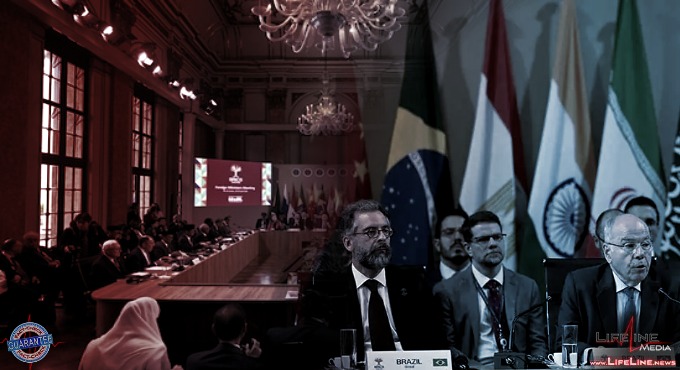


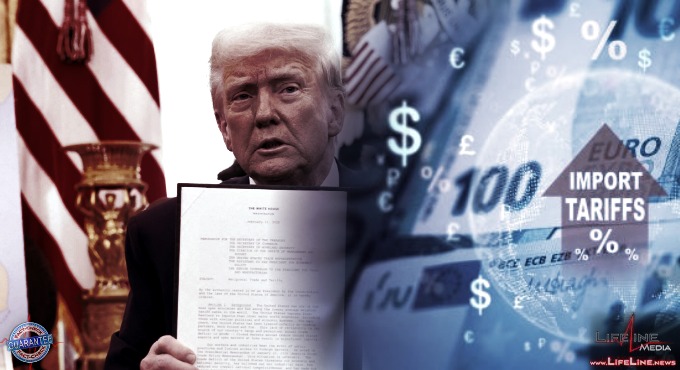

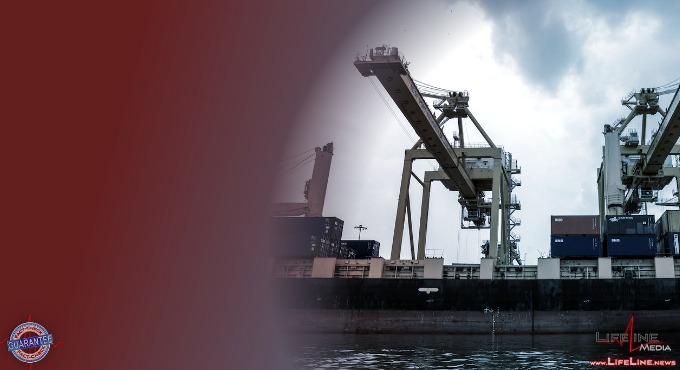
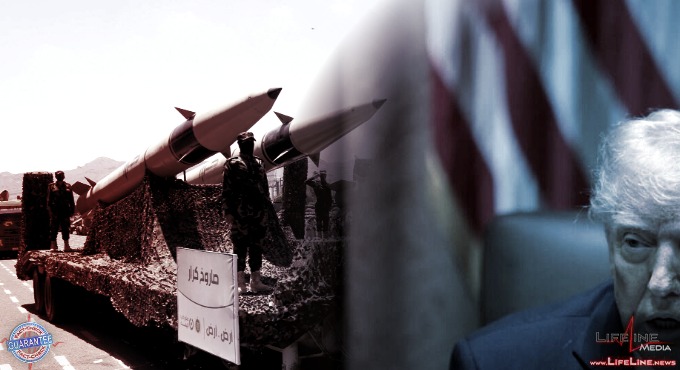
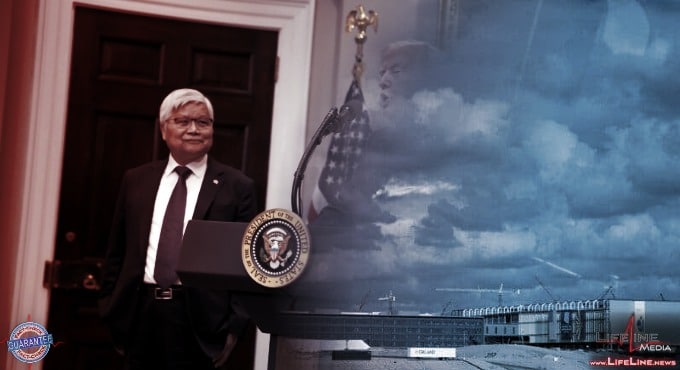




![How Biden’s Corporate Tax Hike, 100+ Wall Street Pictures [HD]](https://lifeline.news/wp-content/uploads/bidens-tax-hike-terror-how-wall.jpg)




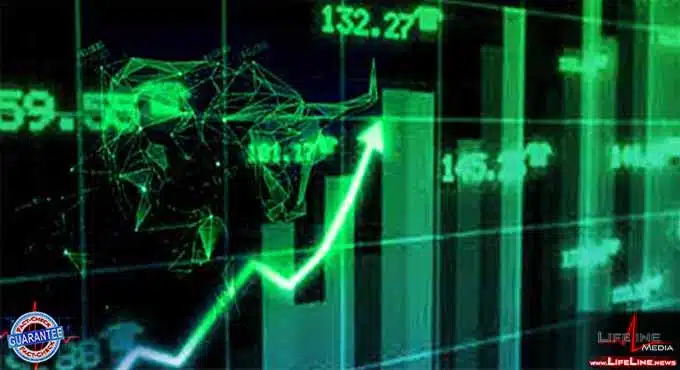
Social Chatter
What the World is SayingChina’s shocking DeepSeek AI pops US Big Tech monopoly bubble Chinese AI company DeepSeek shocked the West with a groundbreaking open-source artificial intelligence model that beats huge Silicon Valley Big Tech monopolies. Is the US stock market bubble popping? By Ben Norton China is making enormous...
. . .S. Korean President Arrested; Biden Toughens China Tech Curbs | Bloomberg: The China Show 1/15/2025. S. Korean President Arrested; Biden Toughens China Tech Curbs | Bloomberg: The China Show 1/15/2025 Bloomberg: The China Show” is your definitive source for news and analysis on the world's second-biggest economy.
. . .Ukraine is a U.S. interest. But not worth direct U.S. intervention, as I’ve argued from the beginning. Taiwan is, if defensible. We must be prepared for any war with Russia or China to go...
. . .30.01.2024. 30.01.2024 **China reportedly started mapping out a big-budget rescue mission to bring $300 billion back onto its shores.** * China's stock market fell 7% this January alone. * Government is now raiding state companies' offshore accounts, gaining $300 billion to be funnelled straight into the econ...
. . .China in MSCI Index - Chinese Stock Market. China in MSCI Index - Chinese Stock Market In economic news Last week, Morgan Stanley Capital International (MSCI), a widely-tracked global index provider, said it would ...
. . .